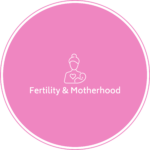When it comes to supporting fertility and maintaining a healthy pregnancy, nutrition plays a vital role. One powerhouse ingredient that deserves special attention is omega-3-rich salmon. Packed with essential fatty acids and a plethora of nutrients, salmon offers numerous benefits for reproductive health. Let’s explore the nutritional wonders of omega-3-rich salmon and how it can contribute to your fertility journey.
The Omega-3 Rich Salmon Recipe
Ingredients:
– 2 salmon fillets (wild-caught for optimal nutrition)
– 2 tablespoons olive oil (rich in monounsaturated fats)
– 1 tablespoon lemon juice (provides vitamin C and enhances flavor)
– Salt and pepper to taste
Instructions:
- Preheat the oven to 400°F (200°C).
- Place the salmon fillets on a baking sheet lined with parchment paper.
- Drizzle the olive oil and lemon juice over the fillets.
- Season with salt and pepper to taste.
- Bake for 12-15 minutes or until the salmon is cooked through and flakes easily with a fork.
- Serve immediately and savor the omega-3 rich salmon goodness.
Understanding the Benefits

Omega-3 rich salmon offers a wealth of benefits for fertility and healthy pregnancies:
1. Essential Fatty Acids:
Salmon is rich in omega-3 fatty acids, including eicosapentaenoic acid (EPA) and docosahexaenoic acid (DHA), which are crucial for reproductive health [1]. These fatty acids play a role in regulating hormones, promoting healthy ovulation, and supporting fetal development during pregnancy.
2. Protein Powerhouse:
Salmon is an excellent source of high-quality protein [2]. Protein is essential for the production of reproductive hormones and supporting the growth and development of the fetus.
3. Nutrient-Rich:
Salmon is packed with essential nutrients like vitamin D, vitamin B12, selenium, and iodine [3]. These nutrients contribute to hormonal balance, reproductive function, and fetal growth.
4. Anti-Inflammatory Properties:
The omega-3 fatty acids in salmon possess anti-inflammatory properties [4]. Inflammation in the reproductive system can negatively impact fertility, and consuming omega-3 rich foods like salmon may help reduce inflammation.
5. Heart Health Benefits:
Omega-3 fatty acids in salmon have been associated with improved cardiovascular health [5]. A healthy cardiovascular system is essential for supporting reproductive health and maintaining a healthy pregnancy.
Incorporating Omega-3 Rich Salmon into Your Diet

To reap the benefits of omega-3 rich salmon, aim to incorporate it into your diet at least twice a week. Experiment with various recipes such as grilled salmon, salmon salads, or salmon stir-fries to add variety to your meals. Pair it with fertility-friendly sides like leafy greens, whole grains, or steamed vegetables for a well-rounded and nourishing meal.
Conclusion
Omega-3-rich salmon is a nutritional powerhouse that provides essential fatty acids and a wide range of nutrients to support fertility and healthy pregnancies. With its hormone-regulating properties, anti-inflammatory benefits, and nutrient density, salmon is a valuable addition to your fertility-enhancing diet. Incorporate omega-3-rich salmon into your meals and enjoy the nutritional benefits it offers as you embark on your journey towards conception and a healthy pregnancy.
References:
[1] Gaskins, A. J., et al. (2018). Dietary fish oil supplementation and ovulation frequency in women with polycystic ovary syndrome: A randomized controlled trial. The Journal of Clinical Endocrinology & Metabolism, 103(7), 2697-2705.
[2] Office of Dietary Supplements – Protein. (2021). National Institutes of Health. Retrieved from https://ods.od.nih.gov/factsheets/Protein-Consumer/
[3] Office of Dietary Supplements – Omega-3 Fatty Acids. (2020). National Institutes of Health. Retrieved from https://ods.od.nih.gov/factsheets/Omega3FattyAcids-Consumer/
[4] Calder, P. C. (2015). Marine omega-3 fatty acids and inflammatory processes: Effects, mechanisms, and clinical relevance. Biochimica et Biophysica Acta, 1851(4), 469-484.
[5] Mozaffarian, D., & Wu, J. H. Y. (2011). Omega-3 fatty acids and cardiovascular disease: Effects on risk factors, molecular pathways, and clinical events. Journal of the American College of Cardiology, 58(20), 2047-2067.



